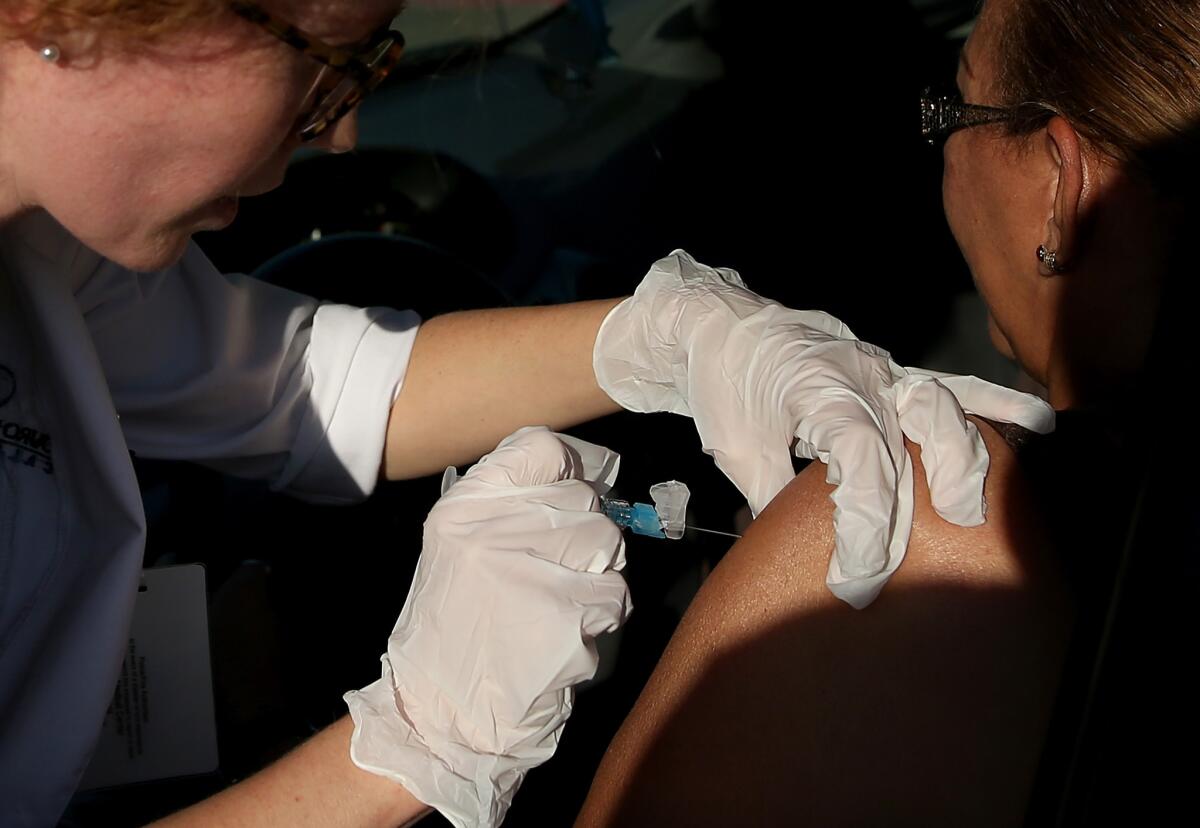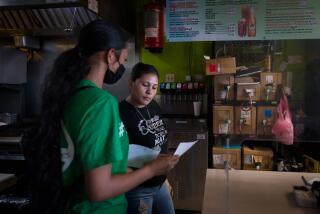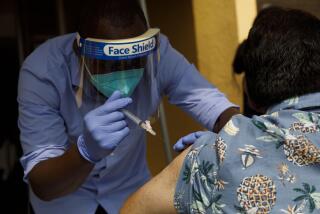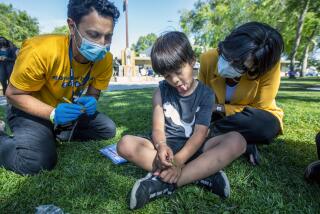Op-Ed: California Latinos, reluctant to get flu shots, have much to risk

A woman receives a flu vaccine during a drive-thru flu shot clinic in San Pablo, Calif., last November.
- Share via
It can be easy to forget that the flu kills. Young, healthy adults might only miss a few days of work if they catch the flu this winter, but by skipping flu shots, getting sick and potentially spreading the virus, they are also endangering vulnerable children, those with chronic diseases, and the elderly with whom they come in contact.
In early November, California had its first infant death of the year from the flu. As important to public health as flu vaccinations are, according to UCLA’s California Health Interview Survey, only 43% of Californians received a flu shot in 2014. Worse, among Latinos, the largest racial or ethnic group in the state, only 37% were vaccinated.
The flu vaccination message that has been so well communicated in Mexico needs to spread to Latinos and everyone else in California.
That statistic becomes even more troubling when one examines differences among first-, second- and third-generation Latinos. First-generation Mexican Americans — those born in Mexico, where vaccination is widespread and more commonly accepted than in the United States — are far more likely to get flu shots than those born and raised here.
In 2014, only 24% of second-generation Latinos and 15% of third-generation Latinos in California received a flu vaccination, compared with 61% of first-generation Latinos.
In our recent study using California Health Interview Survey data, we show that even when taking into account factors such as insurance status, health status and characteristics such as education and age, the disparity in flu vaccination rates among Mexican Americans of different generations remains.
This is an economic issue as well as a public health issue. One study estimated that in just one year — 2003 — the flu cost the United States $87.1 billion in medical costs and lost wages. The Latino population is expanding in California, which means absenteeism and hospitalization costs associated with the lack of flu vaccinations will also expand if the generational patterns continue.
There is one simple explanation for why vaccination rates among second- and third-generation Latinos differ so significantly from those of their newcomer parents and grandparents. Mexico heavily promotes vaccination in general, and it has the highest rate of flu vaccination among people older than 65 in nations that are part of the Organization for Economic Cooperation and Development. In the U.S., however, many people aren’t persuaded by public health campaigns for flu shots; they are suspicious of vaccinations, wrongly believing that shots cause health problems rather than prevent them.
The flu vaccination message that has been so well communicated in Mexico needs to spread to Latinos and everyone else in California. Flu shot campaigns aimed at Latinos should particularly target second- and third-generation immigrants. Now such campaigns are mostly delivered in Spanish, though the Pew Hispanic Center has shown that English is the predominant language for the children of newcomers. Family-related messages are also important because many Latinos live in multigenerational homes, where the risk of spreading the flu to the very young, those with diseases such as diabetes, and the elderly is acute.
California and Washington should provide funding for new outreach for free or low-cost vaccinations, and for additional research into the most effective forms of health communications for our changing population.
The lack of vaccination among Latinos creates unnecessary dangers. Economic losses due to the flu, and deaths associated with the flu each winter, are preventable with a one-dose vaccine. Get the message out.
Mariaelena Gonzalez is an assistant professor of public health and a member of the Health Sciences Research Institute at UC Merced. Jennifer Mendiola and Van Do-Reynoso are doctoral candidates at UC Merced.
Follow the Opinion section on Twitter @latimesopinion and Facebook
More to Read
A cure for the common opinion
Get thought-provoking perspectives with our weekly newsletter.
You may occasionally receive promotional content from the Los Angeles Times.










